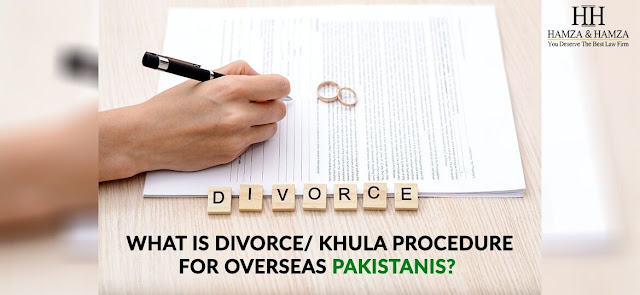Which Pakistani Laws Govern The Khula Process?
- Get link
- X
- Other Apps
In Pakistan, Khula is the legal right of a Muslim woman to seek the dissolution of her marriage through a family court when she cannot live with her husband “within the limits prescribed by Allah.” While Khula Procedure In Pakistan has its roots in Islamic jurisprudence, it is administered and regulated through specific laws in Pakistan that provide a legal framework for initiating, processing, and finalizing the divorce. Understanding these laws is essential for individuals navigating the family court system and asserting their marital rights.
1. Family Courts Act, 1964
The cornerstone of the legal framework governing Khula in Pakistan is the Family Courts Act, 1964. This Act establishes family courts in each district and defines their jurisdiction over various family matters, including dissolution of marriage, maintenance, custody of children, and dowry disputes.
-
Section 7 of the Act empowers family courts to hear cases related to the dissolution of marriage.
-
Section 10(4) specifically deals with Khula, stating that if reconciliation efforts between the husband and wife fail, and the wife does not wish to remain married, the court has the authority to grant a decree for the dissolution of marriage.
This means a woman does not need the husband’s consent for Khula; the court can grant it based solely on the woman’s unwillingness to continue the marital relationship.
2. Dissolution of Muslim Marriages Act, 1939
The Dissolution of Muslim Marriages Act, 1939 is another critical statute relevant to women seeking divorce in Pakistan. Although Khula is not explicitly named in this Act, it outlines various grounds on which a Muslim woman can seek dissolution of her marriage through the court. These include:
-
Cruelty by the husband
-
Desertion for four years or more
-
Failure to provide maintenance for two years
-
Impotence of the husband
-
Marital life becoming unbearable
This Act complements the Khula process by offering alternative legal justifications for dissolving a marriage. In many Khula cases, if the woman cites cruelty, neglect, or abuse, her case may simultaneously fall under this Act’s provisions.
3. Muslim Family Laws Ordinance, 1961
The Muslim Family Laws Ordinance (MFLO), 1961 plays an administrative role in the divorce process, including Khula. While it mainly addresses marriage registration, polygamy, and talaq (divorce by the husband), it also governs the post-decree process of dissolution.
-
Section 7 of the MFLO requires that after a Khula decree under Khula Procedure In Pakistan
is passed by the family court, a notice of the dissolution must be sent to the Union Council.
-
The Union Council then issues notices to both parties and observes a 90-day reconciliation period.
-
If no reconciliation occurs, the divorce becomes final, and the Chairman of the Union Council issues a Certificate of Dissolution.
This step is crucial for the official registration of the Khula and ensures that the divorce is recognized by the state.
4. Qanun-e-Shahadat Order, 1984 (Law of Evidence)
While not specific to Khula, the Qanun-e-Shahadat Order, 1984 governs the rules of evidence in family court proceedings. It applies to how testimonies, affidavits, and documentary evidence are handled in Khula cases. For instance, a woman’s statement that she cannot continue the marriage may serve as sufficient evidence for the court to issue a decree, in line with established judicial interpretations.
5. Judicial Precedents
Apart from codified laws, judicial decisions significantly shape the Khula process in Pakistan. In Khurshid Bibi v. Baboo Muhammad Amin (PLD 1967 SC 97), the Supreme Court ruled that if a woman genuinely believes she cannot live with her husband according to Islamic principles, the Hamza & Hamza Law Associates is justified in granting Khula. This ruling set a precedent that reinforced women’s autonomy and the principle that a court does not need the husband’s permission to dissolve the marriage.
Conclusion
The Khula process in Pakistan is governed by a combination of Islamic principles and legal statutes, primarily the Family Courts Act, 1964, the Dissolution of Muslim Marriages Act, 1939, and the Muslim Family Laws Ordinance, 1961. These laws provide a clear pathway for women to seek justice and freedom from an unsustainable marriage. Judicial interpretations and administrative procedures ensure that the process remains legally sound, fair, and consistent with both Islamic values and constitutional rights.





Comments
Post a Comment